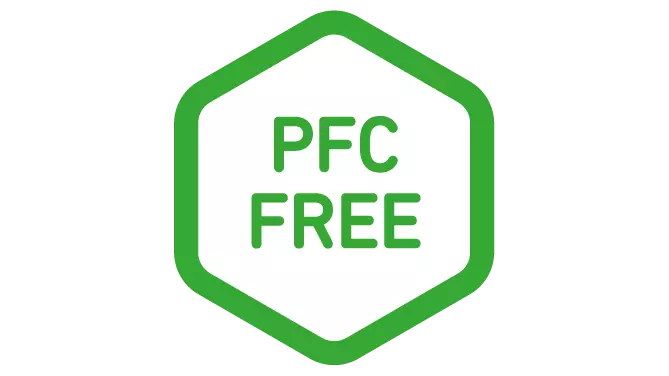FAIR FROM A TO Z – WITH THE FAIR
WEAR FOUNDATION
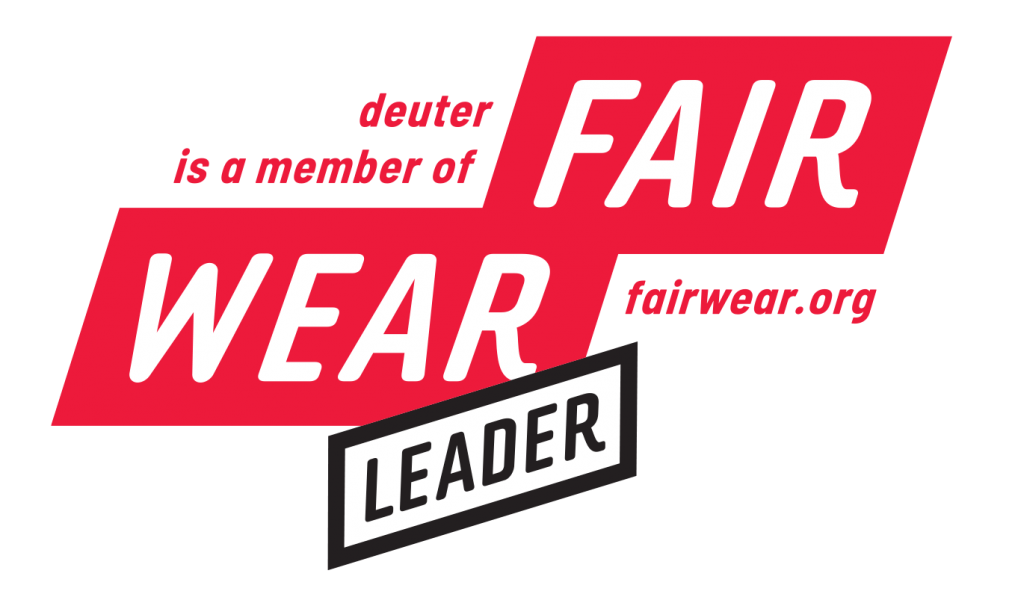
We are celebrating a small anniversary – deuter has been a member of the Fair Wear Foundation for ten years. A milestone in our efforts to achieve socially just working conditions. Because fairness is important to us throughout the entire production and supply chain of our backpacks and sleeping bags.
FOR FAIR PRODUCTION
We all want it: to live in a better world. In a fairer world.
Wouldn’t it be nice to know that everyone who works on a deuter backpack or bag earns a living wage?
Wouldn’t it be nice to know that important social labour standards are respected in the production of your new deuter sleeping bag?
More and more buyers are rightly demanding fair conditions in production and trade – whether it’s sports goods or breakfast cereals. We at deuter know: We have to actively do something about it. To ensure that our efforts do not fizzle out as individual actions, we join forces with others. deuter has been a member of the Fair Wear Foundation (FWF) since 2011 and has been consistently awarded FWF Leader status since 2013. Our common goal: socially just and environmentally friendly, sustainable production conditions.
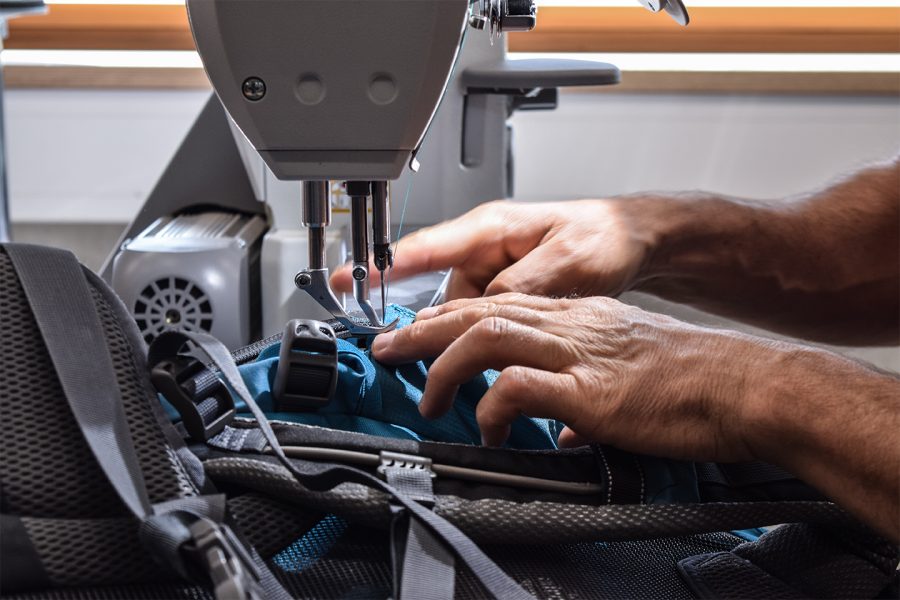
FWF BEST PRACTICE
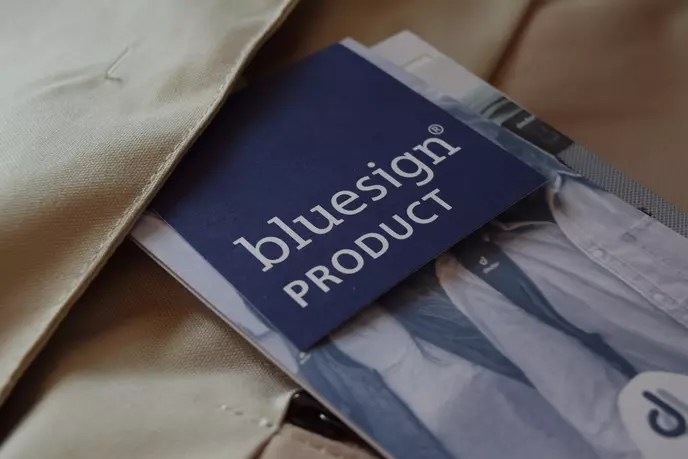
BLUESIGN® STANDARD
Even mindfully produced outdoor gear leaves ecological footprints. At deuter, we want to keep them as small as possible. That’s why we produce according to the comprehensive standards of the bluesign® system – out of responsibility for people, the environment and resources.
EVERYTHING ABOUT THE BLUESIGN® STANDARD
Sustainable textile production is everyone’s business. You too. After all, you wear them yourself. Whether it’s jeans for everyday wear, functional jackets or backpacks for hiking, biking or ski touring – their production is complex and can have a significant impact on people and nature. We want to reduce the impact. That’s why we look for optimisation opportunities at all stages of the production chain – from the raw material to the finished product. This concerns the quantity, type and quality of the material as well as energy and water consumption, the handling of chemicals, noise emissions, resulting waste and occupational safety.
In our efforts for environmentally friendly manufacturing processes, we have been following the bluesign® standards since 2008. A coherent approach that fits ideally with deuter’s 360° responsibility strategy.

TEXTILE ALLIANCE FOR MORE SUSTAINABILITY
With our backpacks and sleeping bags you can immerse yourself in dreamlike natural worlds. It is important to us that this beautiful world is polluted as little as possible. That's why we are involved in the Alliance for Sustainable Textiles together with many other companies.
TOGETHER WE CAN DO IT
With our backpacks and sleeping bags you can immerse yourself in dreamlike natural worlds. It is important to us that this beautiful world is polluted as little as possible. That's why we are involved in the Alliance for Sustainable Textiles together with many other companies.
deuter is the most popular backpack brand in Germany. This is also because we place high technical and functional demands on our backpacks and sleeping bags. But that alone is not enough for us. We want to produce outdoor equipment in an environmentally friendly, sustainable way and under socially fair conditions. We consider socially responsible production structures and supply chains to be no less urgent. A few rules for our production sites are not enough. Other suppliers, such as spinning mills, dyeing mills, weaving mills, outfitters and textile printers, are involved in the long supply chains leading up to the finished product. The more, the more difficult it is to track whether social and environmental standards are being met. This world is complex and difficult for us to understand as a single brand. That's why we pull together with other production partners and companies as members of the Alliance for Sustainable Textiles, or Textile Alliance for short. This alliance helps us to disentangle complexity and ensure transparency.

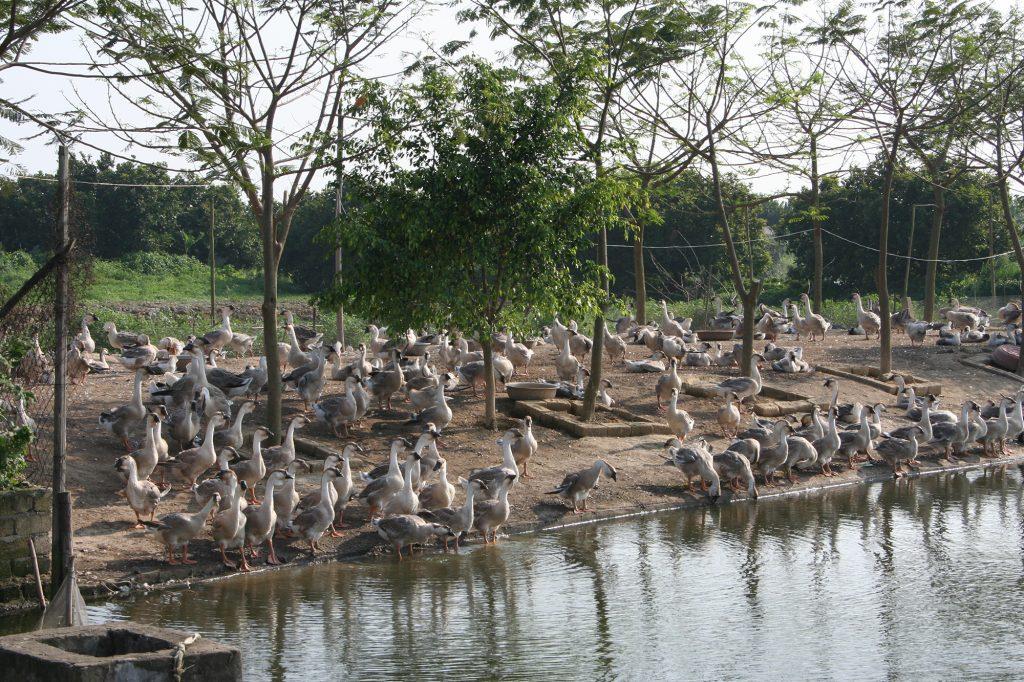
RESPONSIBLE DOWN
Sustainable natural materials should also be produced in an ecologically mindful way. That's why we rely on puffy, warming feathers certified according to the Responsible Down Standard (RDS) for our down sleeping bags.
RESPONSIBLE DOWN STANDARD - A HEART FOR ANIMALS
How do you think it would feel if someone ripped your hair off your head alive without anaesthetic? Certainly not good. So it's understandable that plucking - the "harvesting" of down - from live birds has been banned in Europe since 1999. Do we still need a special standard that regulates how down from geese and ducks gets into sleeping bags? Yes. Because just as in meat production, existing laws provide a certain framework, but still leave loopholes in production that can lead to animals suffering - even if they are not plucked alive. That is why we have been using down that complies with the Responsible Down Standard (RDS) for the filling of our down sleeping bags since 2015.
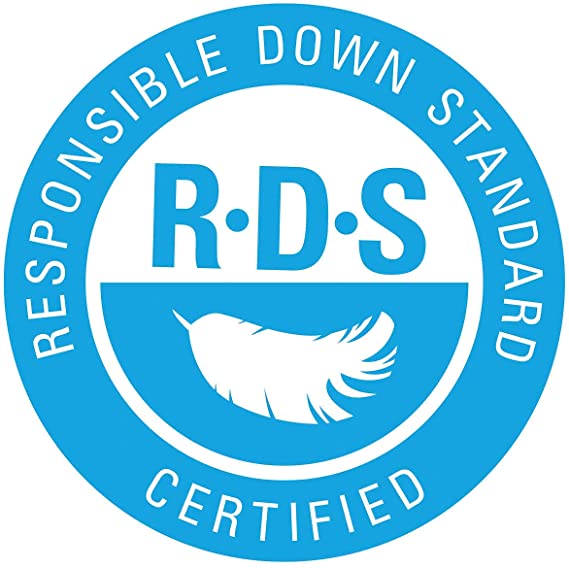
AWAY FROM PFC - TOWARDS ENVIRONMENTALLY FRIENDLY IMPREGNATION
EVERYWHERE YOU READ PFC-FREE? WHAT EXACTLY DOES PFC MEAN?
Perfluorinated and polyfluorinated chemicals, PFCs for short, are substances that are harmful to the environment and also have a major impact on our health. The chemicals are found in many everyday products such as cookware, paper, pizza boxes or textiles such as rain jackets. Once they enter the environment, they spread worldwide. Researchers have found traces of PFCs in drinking water, air, blood, polar bears and breast milk. Some PFCs can even negatively affect reproduction and cause cancer. The harmful fluorocarbons degrade only very slowly - over several hundred years - or in some cases not at all.
WHY USE PFC AT ALL?
PFCs are used for their water-, dirt- and grease-repellent properties and in breathable membranes, among other things. PFCs are particularly popular in the outdoor industry for impregnating textiles. Without the water-repellent coating, the material would become saturated with water, wet and therefore heavy.
THIS IS HOW DEUTER MANAGES TO IMPREGNATE IN AN ENVIRONMENTALLY FRIENDLY WAY...
For the sake of the environment, deuter decided several years ago to manufacture all its products without environmentally harmful fluorocarbons (PFC). But how? For a long time there was no comparable alternative to the harmful chemicals. It wasn't until Greenpeace launched the "Detoxifying our Clothes" campaign in 2012 that suppliers and the chemical industry began to develop alternative, environmentally friendly methods for impregnating textiles. Many outdoor companies - including deuter - are responding to this.
ALL DEUTER PRODUCTS WILL BE PFC-FREE FROM SPRING/SUMMER 2020
To ensure water- and dirt-repellent properties, deuter now uses a DWR (Durable Water Repellency) that is harmless to health and the environment and completely does not use PFC. This special surface treatment causes water to bead up on the outside of the textiles and the product remains dry. With this method, deuter is gradually coming closer to its goal: to only manufacture PFC-free products from 2020.
